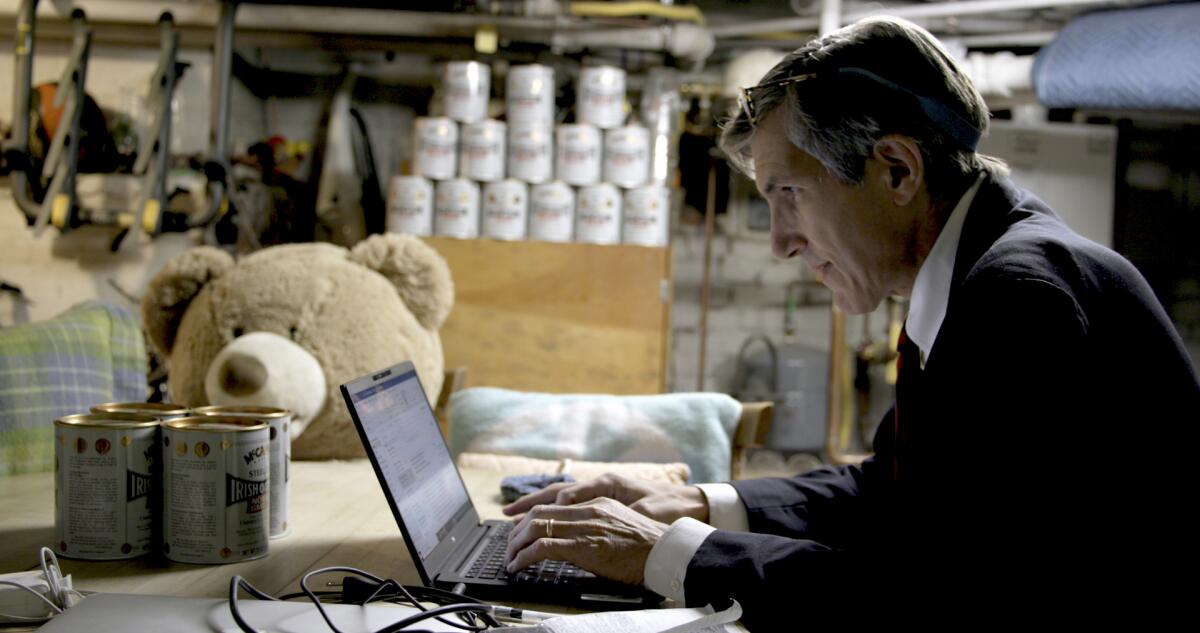Review: âHow to Survive a Pandemicâ explores moral failings in COVID-19 response

Documentaries about COVID-19 havenât been in short supply, but the filmmakers with a go-to methodology for covering rapidly evolving stories have been the ones best suited to get a comprehensive feature about these last couple of years into shape.
One of them is journalist David France, already well-versed and well-sourced on public health matters after his Oscar-nominated 2012 documentary âHow to Survive a Plague,â a history of the fight that activists from ACT UP and TAG waged to force a fearful, bigoted nation to intensify its response to the AIDS epidemic. Now we have âHow to Survive a Pandemicâ â which he began shooting shortly after lockdowns in March 2020, taking advantage of unprecedented access to trusting health professionals. Itâs a globe-trotting look at the worldwide response to COVID-19, with an emphasis on the unprecedented effort to get a safe, effective vaccine quickly into billions of people.
For your safety
The Times is committed to reviewing theatrical film releases during the COVID-19 pandemic. Because moviegoing carries risks during this time, we remind readers to follow health and safety guidelines as outlined by the CDC and local health officials.
With veteran science journalist Jon Cohen as a throughline interviewer of sorts, we jump into the drive to find a vaccine: the FDAâs top vaccine regulator Dr. Peter Marks is eager to keep protocols strict under an impatient Trump administration; researchers at Johnson & Johnson and the NIH get excited about the possibility of an mRNA solution in record time; and officials at the World Health Organization and elsewhere are determined to ensure all countries get access to vaccines through the worldwide procurement initiative COVAX.
Itâs an early sign of concern, though, that of the 170 countries that signed on to COVAX, the U.S. wasnât one of them. But even with an election year tightening the screws, Pfizerâs out-of-the-gate success in late 2020 brings the movieâs bullet-paced chronicle to a tearful, champagne-popping high point.
Just as essential to filmmaker Franceâs narrative, though, is how a massive win for dedicated scientists was followed by a vaccine rollout stained by politics, wealth inequality and self-interest. If Part I ends as a shot in the arm â literally and figuratively, where the triumph of science is concerned â Part II is the punch in the gut in which honest skepticism, dishonest ignorance, the outgoing Trump administrationâs political pettiness and the unmet needs of poor nations serve to hobble the efficient distribution of a life-saving jab.
One sequence stirringly depicts the healing power of outreach, however, when Pittsburgh priest Paul Abernathyâs volunteer organization, Neighborhood Resilience Project, quickly spearheads signing up more than a thousand members of his underserved and noticeably skittish community of color to take advantage of a pop-up clinic with 2000 extra doses. That the clinic is in an abandoned grocery store is a stinging economic detail that underscores the lingering hardships for many that the pandemic exposed.
Part IIâs wider view is the global scale of that adversity, and how the effort to equitably dispense vaccines to poor nations was thwarted by profit margins and self-serving, rich nations such as ours, leading directly to the rise of variants, and more deaths. (Though COVAX â presented in the documentary as an initial beacon of hope â came in for its share of criticism this last year, France keeps the blame firmly on corporations and countries for this moral failure.)
In an already packed field of pandemic docs â with Nanfu Wangâs âIn the Same Breathâ so far the best â âHow to Survive a Pandemicâ is somewhere between feeling like another of many (thanks to familiar drone shots, stats, kaleidoscopic structuring, and thriller music), and yet in its bracing totality, coming off as reason enough to keep these films coming if weâre still trying to figure out what went wrong amidst so much affirming, important work.
That sense of a challenge valiantly fought, yet still dominating our world, is arguably why David France chose a title that deliberately mirrors the clear-eyed use of the word âSurviveâ for his AIDS film. Because again, he didnât find a story of a virus vanquished, but rather of an ongoing disaster we can only hope to outlast and â as scientific practice is predicated on â learn from.
'How to Survive a Pandemic'
Not rated
Running time: 1 hour, 49 minutes
Playing: Starts March 25, Laemmle Monica, Santa Monica; available March 29 on HBO and HBO Max
More to Read
Only good movies
Get the Indie Focus newsletter, Mark Olsen's weekly guide to the world of cinema.
You may occasionally receive promotional content from the Los Angeles Times.










